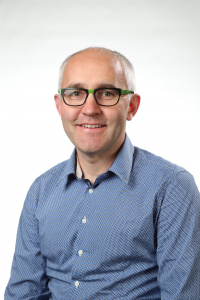
Dr Rob Zielinski
An oncologist involved in medical cannabis trials in Australia says prescribing it is challenging on many levels, but has become easier over the last two years.
Speaking at COSA 2018 in Perth, Dr Rob Zielinski who practices in Orange, NSW, said oncologists quite rightly feel uneasy about prescribing products without good evidence of benefits and risks, and yet face huge pressure from patients who may have unrealistic or ill-informed expectations about cannabis.
Cancer patients pick up a lot of myths and misinformation about medical cannabis in the media, and demand is also driven by hype from manufacturers and online medical cannabis clinics. Older cancer patients were being urged to use it by younger family members who used it recreationally and viewed it as a low risk product, he added.
“Patients are seeing and hearing all this and coming into the clinic and asking about it and it’s taking a lot of time – but it’s a conversation we need to have,” said Dr Zielinski.
He cited the example of one of his patients with prostate cancer who refused opioids and palliative care and wanted him to prescribe medical cannabis for his pain.
Dr Zielinski said his default position was that he would not offer medical cannabis to a patient unless they accepted standard of care treatment.
“This guy wasn’t very pleased with me and probably went out and obtained illegal cannabis, but that’s the position statement I put out to all my patients.”
The COSA 2018 meeting heard from several speakers about the major gaps in evidence for medical cannabis, and the difficulties of doing research when patients are already using a wide variety of products that contain multiple active compounds that act on many different receptors.
Dr Zielinski said he preferred to work with the medicinal cannabis product he had been trialling, but he still struggled when it came to choosing the right dose and type of cannabis products and weighing up the risks of adverse effects. Being in NSW he said he was fortunate to have access to the health department medical cannabis hotline and website that provides very useful advice on dosing.
But Dr Zielinski said there were still a lot of unknowns, such as recent research suggesting that cannabis may interact with checkpoint inhibitor immunotherapy and reduce its efficacy.
A survey of 25 patients in his practice showed that most believed that medical cannabis could have a role in treating cancer symptoms such as pain and nausea and were willing to “give it a try”. However it was a concern that many also believed cannabis could have curative effects in cancer and most patients were unaware of cannabis side effects.
The practicalities of prescribing medical cannabis had become a lot easier in the last two years, noted Dr Zielinski, with the TGA now offering a much simpler online approval process with a 48-hour turnaround for SAS applications.
One of the keys to a successful application was to show that patients were already being treated appropriately with maximum doses of conventional treatments and accessing services such as palliative care. And the TGA requirement for ongoing monitoring of patients could be met with pre/post use of the Ontario Symptom Management tool.
“I find this really useful to me as a clinician to work out if the product is effective for the patient, said Dr Zielinksi.
He concluded by saying he believed medical cannabis did have a place in cancer therapy, though this needed to be defined more thoroughly.
“My take home message is that the conversation has changed, patients are driving it and we need to engage otherwise they’re going to use recreational or illegal cannabis, and that’s worse.”
Dr Zielinski declared an interest that he was a co-investigator in the Tilray medicinal cannabis clinical trial being co-ordinated by the Chris O’Brien Lifehouse Centre.